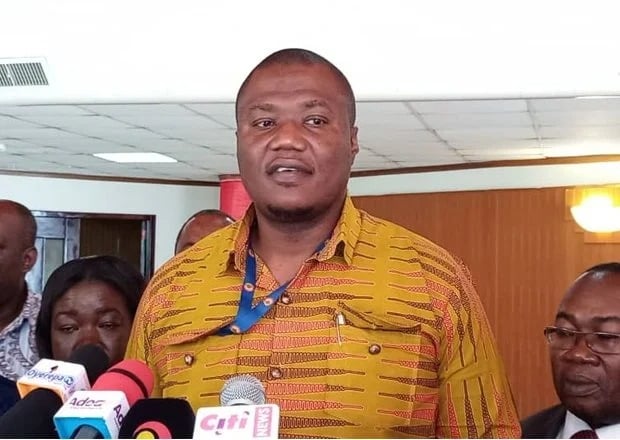Dr. Nana Ayew Afriye, the Member of Parliament for Effiduase-Asokore, recently found himself in hot water over comments he made regarding the government’s stance on small-scale mining, colloquially referred to as galamsey. His remarks, captured in a video during a campaign event on September 27, suggested that the New Patriotic Party (NPP) government would not implement a ban on small-scale mining, despite public and governmental outcry for stricter regulations due to the environmental and social issues associated with galamsey activities. This comment sparked significant backlash, leading to widespread interpretation that he was dismissing the legitimate concerns about the negative impact of irresponsible mining practices in the region.
Following the controversy, Dr. Afriye stated that his comments had been misinterpreted and taken out of context. In a subsequent interview with Eyewitness News on September 30, which was monitored by ModernGhana News, he alleged that the media outlet TV3 had manipulated the footage to create a false narrative that painted him and the NPP government unfavorably. He claimed that the editing of the video led to a distorted representation of his views, suggesting that he implied a lack of governmental action regarding galamsey. Dr. Afriye emphatically contended that this misrepresentation undermined his commitment to responsible small-scale mining practices and the need for regulation.
The MP further clarified that he recognizes the existence of both irresponsible and responsible practices within the small-scale mining sector. He argued that a blanket ban on small-scale mining would not only be unjust but also impractical. Dr. Afriye pointed out the complexity of the issue by comparing it to irresponsible fishing practices observed in various localities, where illegal methods, such as using harmful substances like DDT, pose significant dangers to the environment. He questioned whether the solution to such irresponsible behavior should be an outright ban on fishing, suggesting that targeted actions against illegal activities would be more effective than imposing a complete prohibition on all fishing or small-scale mining.
The reactions to Dr. Afriye’s comments reflect broader societal concerns about the galamsey crisis, which has been linked to environmental degradation, water pollution, and adverse health impacts on local communities. His remarks not only raise questions about the government’s policy direction toward small-scale mining but also reveal the delicate balance between supporting economic livelihoods and ensuring environmental and social responsibility. Such a balance is crucial, especially in a country where many citizens depend on small-scale mining for their livelihoods yet suffer from the adverse effects of illegal and harmful mining practices.
Moreover, Dr. Afriye’s stance highlights a critical debate within Ghana regarding sustainable development and resource management. As community pressures mount for the government to take a firmer stance against illegal mining, the challenge remains for policymakers to devise actionable solutions that reconcile economic interests with environmental protection. This issue is further complicated by the fact that many illegal miners are often impoverished individuals seeking a means of survival, which raises ethical considerations about the feasibility and consequences of imposing harsh penalties or bans.
Ultimately, the incident illustrates the complexities of navigating public policy in a highly scrutinized environment where political leaders must articulate their positions clearly to avoid misinterpretation. Dr. Afriye’s defense of responsible small-scale mining underscores the need for a nuanced approach to regulatory frameworks while fostering dialogue about sustainable practices. As the discussion continues, it remains imperative for the NPP government to engage with stakeholders, including communities affected by mining, environmental advocates, and the industry itself, to create an actionable strategy that prioritizes sustainable resource management, thereby addressing both economic and environmental concerns effectively.














